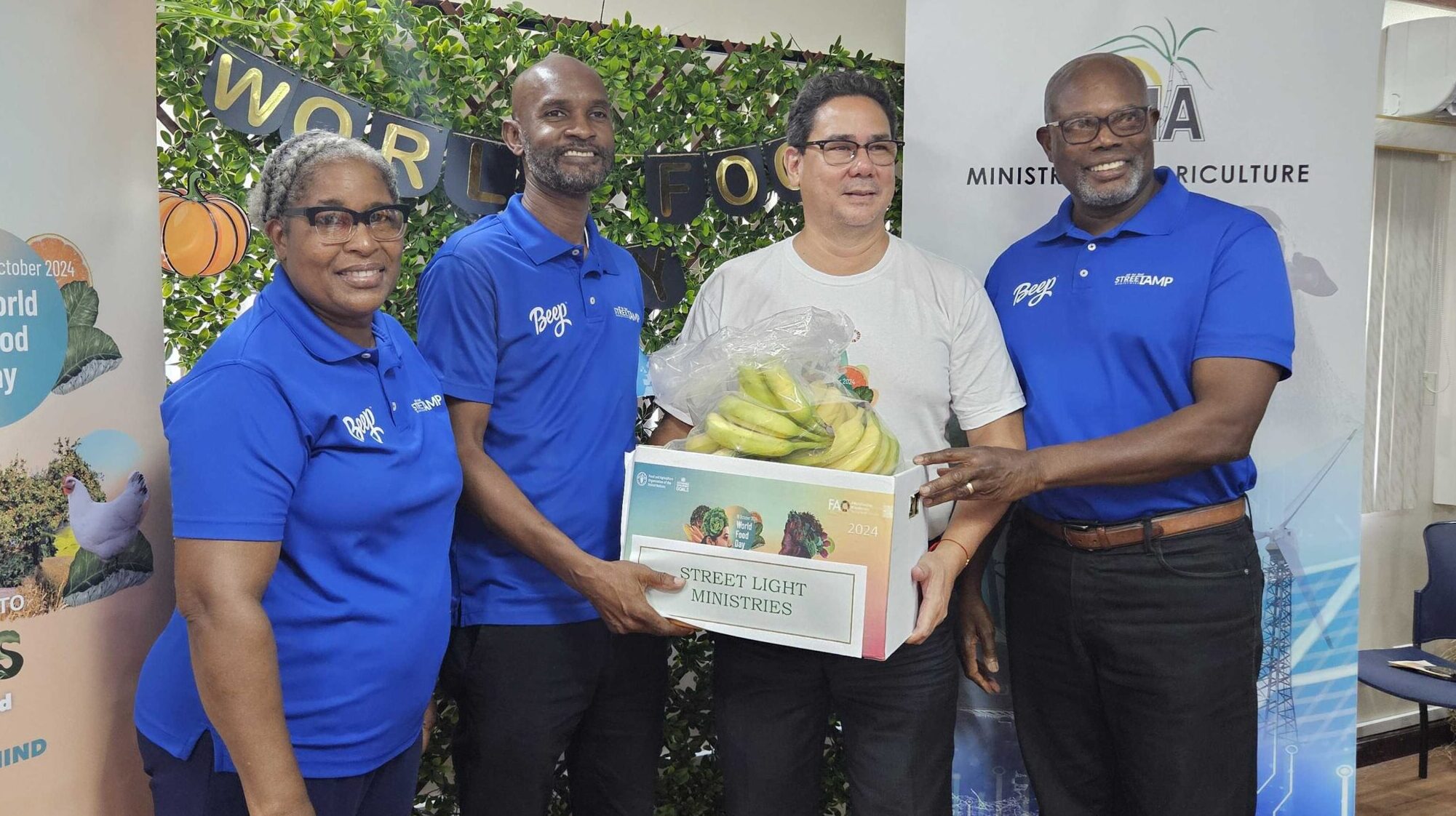Barbadians Urged to Start Kitchen Gardens at Home to Improve Food Accessibility, Ministry of Agriculture Challenges Citizens

October 17, 2024
Ministry of Agriculture encourages Barbadians to start kitchen gardens at home to increase food accessibility. Deputy Chief Officer emphasizes the importance of safe, nutritious food production to combat rising costs and global food insecurity.
The Ministry of Agriculture is challenging Barbadians to start kitchen gardens at home.
Deputy Chief Agriculture Officer Barney Callender wants every citizen to plant food around their homes to make food more accessible in Barbados.
He was speaking at a donation ceremony at the ministry’s Graeme Hall, Christ Church headquarters to commemorate World Food Day which is internationally recognised on October 16.
“It is important as a country that we continue to provide safe and nutritious food for our people,” Callender said. “Climate change and world conflict are not doing us a favour. We must continue to put adequate and adaptable systems in place to provide food. We must also make much use of the land that is available to us to provide nutritional food.”
He added that to make food more available to all, production must increase, which should reduce the cost of nutritional food which he said is now “too high”.
Callender said: “The less fortunate in our society cannot afford nutritional food, but one solution is to produce more. We as a country must increase production which should help reduce the cost of food and make it more readily available to all. I’m sending a challenge to every Barbadian, from the prime minister to every school child, to grow vegetables, herbs, or root crops at their home. I want to further extend this challenge to Barbadians again to reduce their lawns by 50 per cent and plant more food.”
He noted that the unavailability of food is also a problem on a global scale. While the world produces enough food for 8 to 9 billion people, 700 million people (one in every 11 people) go hungry every day.
“Today, hunger is worsened by frequent weather changes, economic downturns and conflict. World Food Day 2024 looks at solutions to ensure that all people have enough, adequate and regular access to diverse safe nutritional food leaving no one behind,” Callender said.
During his remarks at the ceremony, the Food and Agriculture Organisation representative to Barbados Juan Cheaz said it was “high time to transform the right to foods into a reality, in terms of healthy nutritious and affordable diets”.
He expressed concern that the most vulnerable people in society had a significant challenge accessing healthy food due to high costs.
What exacerbated the issue, he said, was the fact that a lot of food across the world was being wasted. Cheaz urged everyone to play their part to reduce food wastage.
“About 31 per cent or roughly a third of all of the food that is produced is being lost or wasted. This is a strong call to address this issue, and this is not only for the farmer, this is not only a message to the supermarket, not only for the household, it is a message for all. We can all do our part in dealing with food loss and waste,” he said.
Three organisations benefited from the donations on Wednesday – the HIV/AIDS Food Bank, Street Lamp Ministries, and the Child Care Board.
Representatives from each organisation thanked the FAO and the ministry for the kind gesture, saying the funds would help their constituents.


